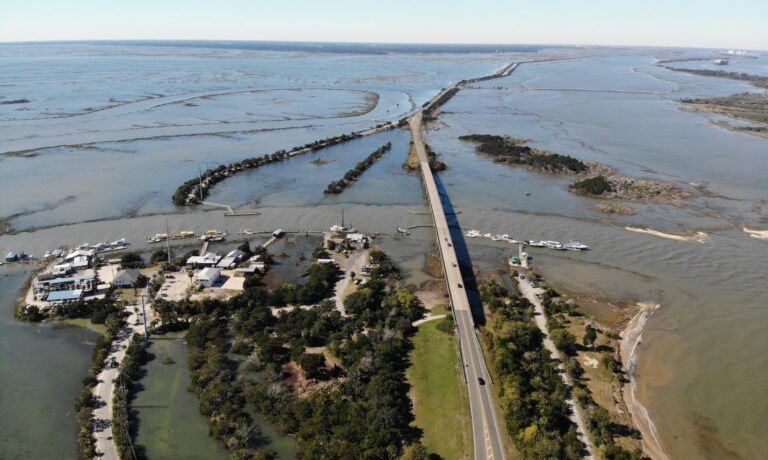As destructive record-breaking storms impose ever greater harm on Georgians and other Americans, it is imperative that the cause of these threats significantly worsening – massive use of fossil fuels – is decisively, quickly curbed. Rapidly growing acknowledgement of the escalating hazards of extreme weather and other costly environmental impacts attributable to burning and processing fossil-fuels is motivating well-informed financial advisors to restructure their guidance provided to clients.
The Center for International Environmental Law [CIEL] just announced the findings of its thorough research, advising financial institutions to stop funding oil and gas industry projects due to the high and escalating risks – both financial and environmental – related to the petrochemical industry.
The effort is an outcome of CIEL’s collaboration with 70 other organizations, which released a policy guide outlining why financial institutions must take into account rapidly increasing social, environmental, climate, and health hazards caused by the extraction, processing, distribution, and use of fossil-fuel related products, including plastics. Also hazardous are air emissions released in burning these fuels, which are cancer-causing and heat-trapping, intensifying climate change damages to human health, property, and the environment.
“In fact, a [recent] report ... reveals that Louisiana’s dependence on the petrochemical industry has taken it from a state of economic growth to one of long-term decline. This should serve as a stark warning for any economies banking on petrochemicals and plastics,” the CIEL notice states.
Highlights of their policy guide include:
• Petrochemical production releases carcinogenic and other highly toxic substances into the air, exposing nearby communities to higher risks of cancer, leukemia, reproductive and developmental problems, nervous system impairment, and genetic impacts.
• Petrochemical production also pollutes waterways with contaminated wastewater. In fact, Formosa Plastics was fined $50M in 2019 for illegally discharging plastic pollution into Texas waterways and another $19.2M as of June 2024 for continuing violations.
• Transporting petrochemicals is dangerous. The East Palestine, Ohio train derailment released toxic chemicals, polluted waterways, displaced residents, and exposed them to severe long-term health risks. Pipeline spills, fires, and leaks also put communities at risk.
• There are over 16,000 chemicals used or present in plastics, and 73 percent of chemicals with available information were considered hazardous to human and ecosystem health. Microplastics containing these chemicals now universally contaminate our air, water, food, soil, and bodies. Exiting Petrochemicals: A Policy Guide for Financial Institutions, Executive Summary Citations are available in the full Exiting Petrochemicals guide www.breakfreefromplastic.org/exiting-petrochemicals .
• The overuse of fossil fertilizers and pesticides exposes farmworkers and communities to toxic pollution and serious chronic diseases, causes algal blooms and dead zones in waterways, leeches into underground drinking water, and degrades and pollutes soil.
They warn that investing in and insuring these industries is both socially irresponsible and risky business.
“Continuing to fund the expansion of the petrochemicals industry will not only lock in pollution and emissions but could result in hundreds of billions of stranded assets.” [Stranded assets are those projects that must be abandoned before generating enough revenue to cover their costs, which can result in catastrophic financial losses for investors.]
“This policy guide has special significance in Georgia, where the Public Service Commission has approved expanded use of fossil fuels to generate electricity, despite our national priority for reducing the emissions released in burning them,” said Alan Bailey, president of the board of the Center for a Sustainable Coast, a non-profit organization protecting Georga’s coast. He added that another reason for Georgians to take these warnings seriously is because climate scientists have attributed at least half of the state’s estimated $6.5 billion dollars in damages unleashed by Hurricane Helene to fossil-fuel-based climate disruption.
Other climate-change damages to property, crops, wildlife, and human health are cumulatively in the hundreds of billions, and rapidly getting worse.


